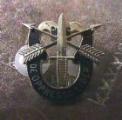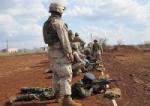1. The discussion of the U.S. Constitution is interesting (I recommend Reed's "biography" of that document to anyone interested) but irrelevant. It is so unique to American political culture that it should stay there. I come from a country that has had over a century of stable government and only in the last 20-30 years has possessed a formal written constitution. The UK has had centuries of uninterrupted Parliamentary Democracy sans constitution. I don't think there is much use tarrying around this uniquly liberal western political construct and its various .
2. What is "good governance"? For the average Pashtun, it probably means being a good muslim and having a nice scooter. What's constitutionalism got to do with all of this? Probably about the same as elections and universal sufferage. This seems like a "bottom-up" vice a "top-down" issue.
3. BW mentions it, but I'm not entirely convinced by his assumption that the insurgents are concerned about the viability of a future Taliban state. As stated above, it is probably erroneous to assume that anybody in the west will want to come charging back to the Arghandab once we've pulled out. If this assumption isn't a given, then the Taliban understand that, as a worst possible case, they can at least dictate terms to Kabul. Even as a worst case this is far better for them (ideologically) than falling in line with NATOs terms.
4. So, if the assumption that the Taliban's only option is to negotiate isn't true, than why would they come to the table, especially considering the postion they are in? Would American revolutionaries have come to the table after Saratoga in exchange for the repeal of a few statutes by Whitehall?





 ) status. Indeed, in the eyes of some Americans today, other Americans are lesser beings (that's a broad brush with much and varied applicability...). IOW, the 'status' was a vagary of human nature as much as it was anything. Most of the myths spread by the Sons of Liberty et.al. were just that, myths. The protests against tax and tax policies had some merit but it was quite similar to today's crowd who want the deficit chopped, taxes not increased -- while all the 'entitlements' remain untouched or are increased. People are selfish. The British had a right to ask the Colonies to pay for their own defense, the fact they went about it in a ham handed way doesn't eliminate the selfishness of the Colonists -- and the quest for power -- of those "oppressed" Citizens.
) status. Indeed, in the eyes of some Americans today, other Americans are lesser beings (that's a broad brush with much and varied applicability...). IOW, the 'status' was a vagary of human nature as much as it was anything. Most of the myths spread by the Sons of Liberty et.al. were just that, myths. The protests against tax and tax policies had some merit but it was quite similar to today's crowd who want the deficit chopped, taxes not increased -- while all the 'entitlements' remain untouched or are increased. People are selfish. The British had a right to ask the Colonies to pay for their own defense, the fact they went about it in a ham handed way doesn't eliminate the selfishness of the Colonists -- and the quest for power -- of those "oppressed" Citizens.








Bookmarks